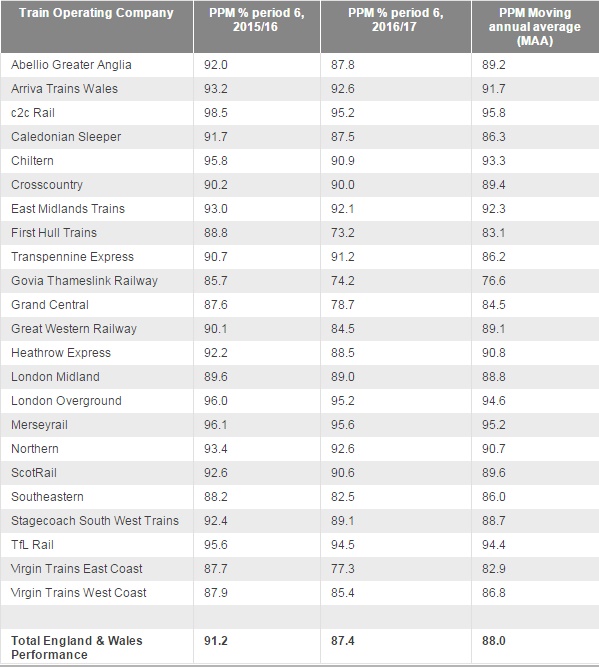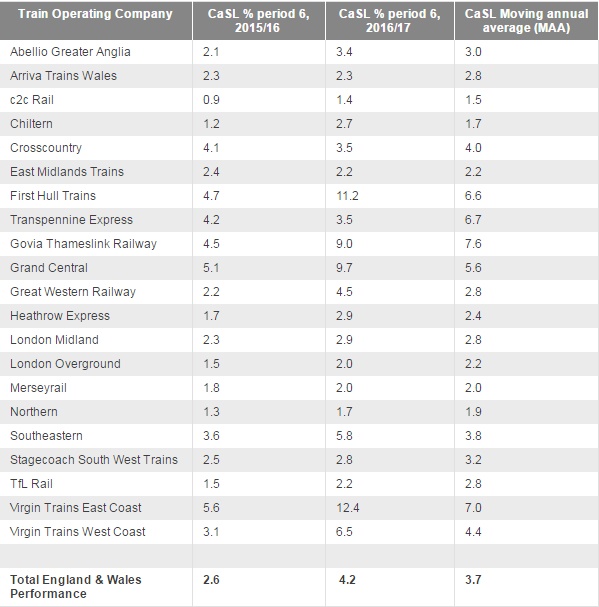26.09.16
Latest PPM figures show decline across the board
Performance and punctuality measure (PPM) figures across Britain’s railway for period 6 fell compared to the same time last year, with all but one TOC experiencing a decline.
The latest figures from Network Rail show that in period 6 (21 August to 17 September), PPM was 87.4%, a 3.8 percentage point decline from the same time last year.
The figures are below the national average of 89.1% in 2015-16, which was the worst in a decade, and below the average of 88.8% in period 5.
Every train company’s figures showed a decline in PPM, apart from TransPennine Express, where the measure increased from 90.7% to 91.2%.
Period 6 is the first time since period 2 that Govia Thameslink Railway (GTR) did not have the lowest PPM. It was at 74.2%, above First Hull, with a PPM of 73.2%. First Hull also had the biggest decline, from 88.8% last year.

In period 5, GTR’s PPM was 73.1%. It has suffered significant delays, forcing it to cancel 341 services a day. GTR announced today that its chief operating officer Dyan Crowther is leaving the company to head up HS1, and is being replaced by Nick Brown.
Furthermore, 41% of GTR’s delays were attributed to the operator, whereas First Hull was found to be responsible for just 8% of its delays.
A spokesperson for First Hull told RTM that the figures were “not truly representative”, adding: “As one of the smaller operators, any delay is disproportionate to our numbers. So if we lose one service when we are only running 14 services - this looks like a much larger 'loss' / higher percentage than it does if a much larger operator loses one service.”
They said First Hull is calling for small companies not to be placed in the same league table as larger operators.
They added that First Hull prefers to run services late when possible instead of cancelling them in order to deliver better passenger satisfaction, which makes the PPM figures worse.
A spokesman for the Rail Delivery Group, representing train operators and Network Rail, said: “The timetable is our promise to passengers and we never want people to suffer delays or disruption.
“With passenger numbers doubling and services increasing by over a quarter in 20 years, the railway is increasingly congested, which is why rail companies are delivering over £50bn of improvements as part of the Railway Upgrade Plan. These improvements will mean more reliable journeys, extra services and new and longer trains.
“Nobody wants to see delays but the current disruption will improve in the long run as we deliver the railway the country needs and passengers want.”
For cancellation and significant lateness (CaSL), the national average was 4.2%, compared to 2.6% in period 6 2015-16.
All companies reported an increase in CaSL, apart from CrossCountry, East Midlands, TransPennine and Arriva.

(Image c. Gareth Fuller from PA Wire)
Have you got a story to tell? Would you like to become an RTM columnist? If so, click here.